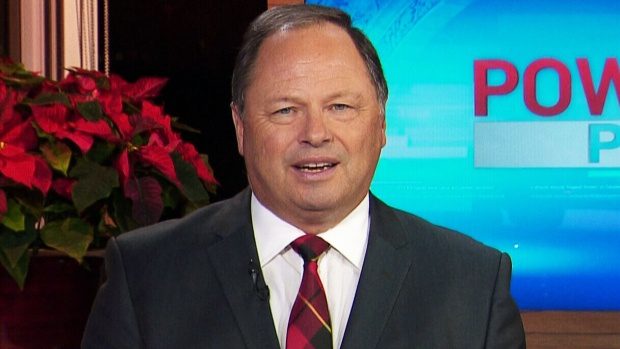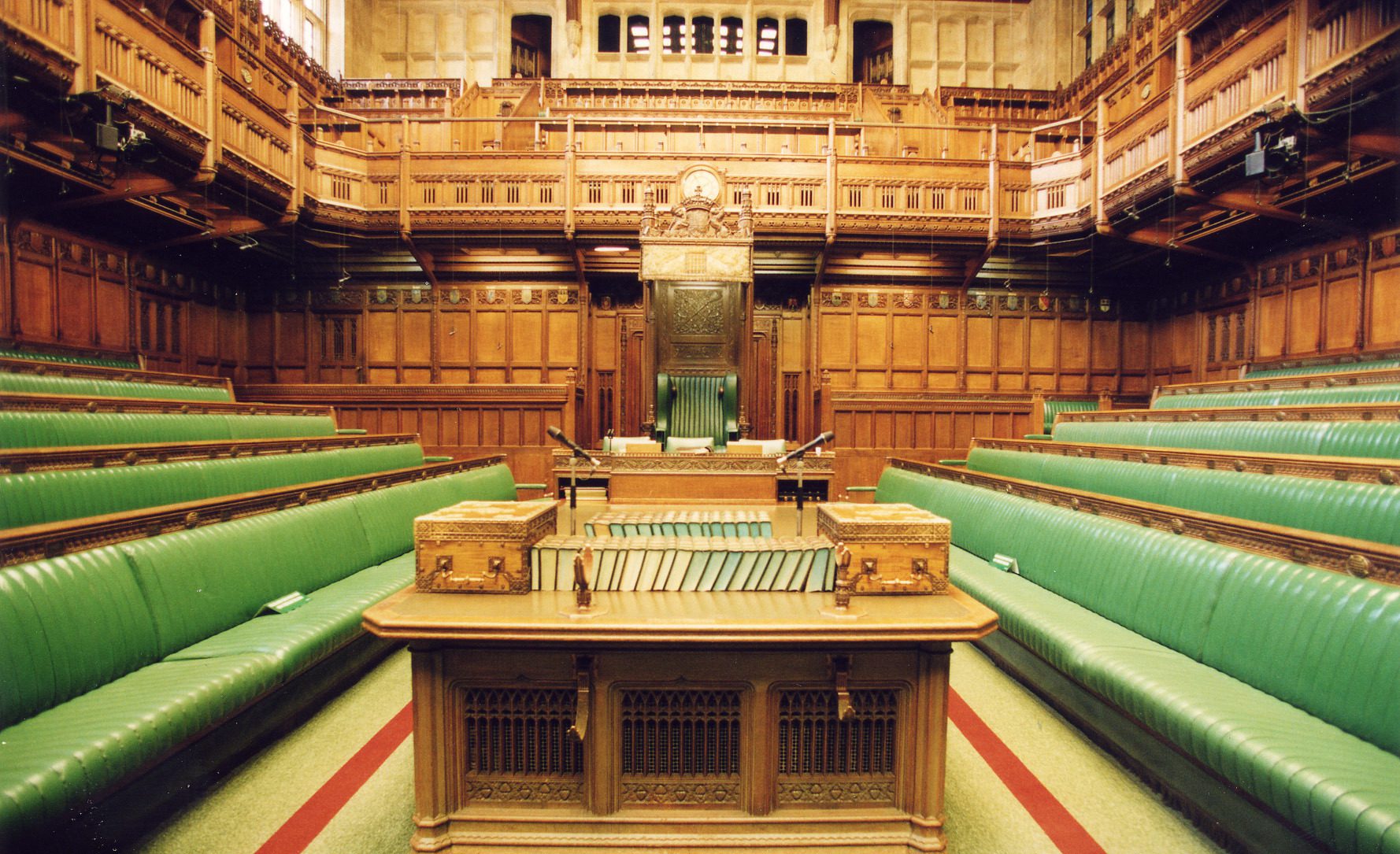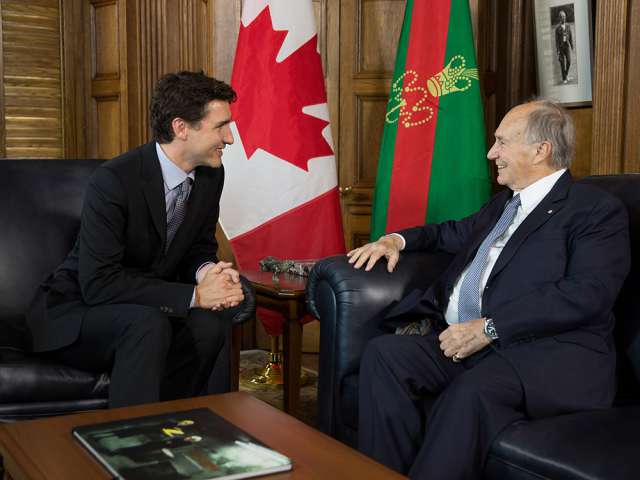For those who are blissfully unaware, one of this country's least-noticed, but most consistently cringe-inducing holiday traditions is the year-end column of Don Martin, in which CTV's purported political know-it-all flaunts his flamboyant incompetence as a soothsayer of headlines-yet-to-come. His December, 2016 column of predictions for 2017 was as howlingly wrong as every previous one, and included such notable non-events as:
- Maxime Bernier wins the Tory leadership, followed by Kellie Leitch, Lisa Raitt, and Kevin O'Leary in second, third, and fourth place, respectively. Notably absent from his tally? Andrew Scheer, the actual winner.
- Charlie Angus wins the NDP leadership on the "third ballot" beating Jagmeet Singh — who in the real world, won on the first.
- Donald Trump visits Canada and Russia. He visited neither.
- Canada sends 600 troops to Mali. Canada in fact explicitly rejected this idea, with the Trudeau government instead vaguely pledging 200 troops to what the Toronto Star called "any number of global hot spots over the next five years."
Martin did get a few things right. He accurately foresaw that Stephane Dion — remember him? — would not survive 2017 as Canada's foreign minister. Dion left the job in early January to become ambassador to Germany.
Martin also accurately foresaw that Democratic Institutions minister Maryam Monsef would be "laterally transferred to a less contentious portfolio" — though given what she went through in 2016, who didn't see that one coming? Don's prediction this would trigger a "cabinet shuffle" chain reaction was way off, however.
Don was also correct in the relatively safe prediction that outgoing party leaders Rona Ambrose and Thomas Mulcair would retire from politics once their successors were elected. Less so was his expectation that old Tory warhorses Ed Fast, Diane Finley and Rob Nicholson would follow suit.
I'd give him partial credit on his claim that the Prime Minister would get off scott-free from the ethics commissioner. She did wind up dropping her investigation into Trudeau's alleged "cash for access" shenanigans back in April, and his government did introduce (though not yet pass) new fundraising reforms, but ongoing fallout from the whole Aga Khan thing, in which the PM was found to be in much more than a mere "perceived" conflict of interest, proved 2017 was, at best, a mixed bag for Trudeau on the ethics front.
This time last year, I theorized that the best way to accurately predict the future would be to make guesses in the most extreme opposite direction of whatever Mr. Martin saw coming. In fairness to Don, this proved a bit of an overreaction. While predicting the inverse of his predictions was an effective way to call a few events, such as that President Trump wouldn't visit Canada and Maxime Bernier wouldn't become Tory leader, in other situations my rank contrarianism caused me to run too far in the other direction. Situations Don didn't see as being at all likely, such as Kevin O'Leary winning the Conservative leadership, or Thomas Mulcair cancelling his retirement plans, didn't wind up happening either, indicating that perhaps good fortune telling requires a more moderate approach.
Lesson learned, I give you my predictions for Canadian politics in 2018, informed by assuming things Don Martin predicts will happen this year won't, but neither will some particularly dramatic alternative. Chances are, 2018 will be a fairly monotonous year of predictable events unfolding predictably. Conventional wisdom and caution rules the day.
- 2018 will be a year of stagnant trade talks. NAFTA negotiations will not progress, and neither will talks with Asia. Business leaders will get frustrated at how little is happening.
- Bill Morneau will eventually resign as finance minister, but it will be handled in an inconspicuous way so it won't seem like a reaction to any particular headline.
- Jagmeet Singh will continue to refuse calls to run for a seat in the House of Commons. He will grow ever more ignored by the press, who begin pushing a narrative that his weak leadership is making the NDP increasingly irrelevant.
- Pot legalization will fail to meet its summer of 2018 implementation deadline, as the rollout plan continues to be mired in logistical concerns and provincial worries.
- The BC-to-Alberta Trans Mountain pipeline twinning project gets no closer to completion. Lawsuits, environmental activism, and Liberal anxiety keep it in frustrating limbo, while industry-types gripe about how difficult it is to move forward with a natural resource project in Canada these days.
- PC leader Patrick Brown is elected premier of Ontario with a majority government. Liberal premier Phillippe Couillard is easily re-elected in next-door Quebec.
- Many of the promises of his last throne speech still unfulfilled, Justin Trudeau elects not to prorogue parliament early, and instead plans to keep the current House sitting until the 2019 election.
Boring? Perhaps. It would be endlessly more entertaining if, say, a troubled third-place party staged a surprise upset to sieze control of our second biggest province (something Don expects), but experience suggests these things don't tend to happen here.
I'm trying to think of the most interesting or shocking thing that happened in Canadian politics in 2017. Kevin O'Leary dropping out of the Conservative leadership contest, maybe? The coalition government drama in British Columbia? It's all pretty weak tea.
As much as those of us who make a living talking about this sort of stuff may wish otherwise, no one ever lost money betting against the fundamental dullness of Canadian politics.
Photo Credit: CTV News
Written by J.J. McCullough










